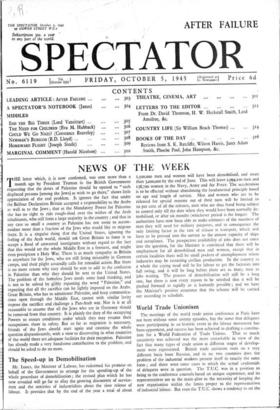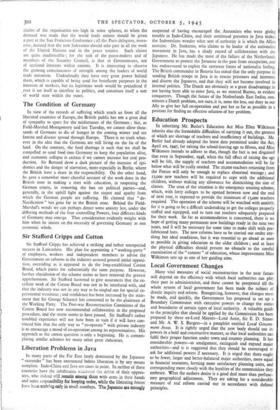World Trade Unionism
The meetings of the world trade union conference at Paris have not been without some stormy episodes, but the sense that delegates were participating in an historic event in the labour movement has been uppermost, and success has been achieved in drafting a constitu- tion for a World Federation of Trade Unions. That so much unanimity was achieved was the more remarkable in view of the fact that many types of trade union at different stages of develop- ment were represented. British trade unionism rests on a very different basis from Russian, and in no two countries does the problem of the industrial workers present itself in exactly the same form ; and there were some cases in which the actual credentials of delegates were in question. The T.U.C. was in a position to bring to the conference counsels based on unique experience, and its representatives are in the main alive to the necessity of keeping the new organisation within the limits proper to the representatives of industrial labour. But even the T.U.C. shows a tendency to set the
claims of the organisation too high in some spheres, as when the demand was made that the world trade unions should be given a part at the San Francisco Conference ; all the Paris delegates, more- over, insisted that the new federation should take part in all the work of the United Nations and in the peace treaties. Such claims are quite inadmissible ; for the task of the peace-makers and of members of the Security Council, is that of Governments, not of sectional interests within nations. It is interesting to observe the growing consciousness of strength among the leaders of world trade unionism. Undoubtedly they have very great power behind them, which is capable of being used for beneficent purposes in the interests of workers, but its legitimate work would be prejudiced if ever it set itself to interfere in politics, and constitute itself a sort of world state within the states.



























